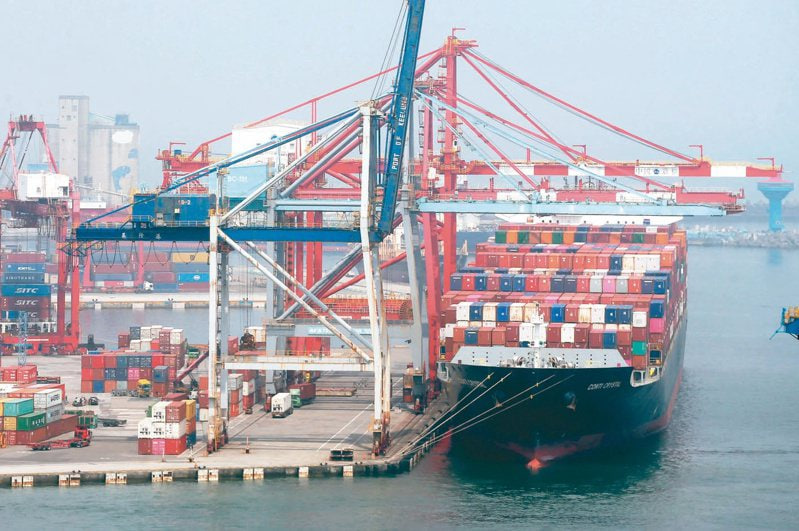France's Stagnant Economy: A Deep Dive into Q4 2023 GDP Projections & Beyond
Meta Description: Unraveling the complexities of France's Q4 2023 GDP forecast – zero growth? We dissect the Banque de France's recent report, exploring underlying economic factors, potential risks, and future implications for French citizens and the global market. Learn from expert analysis and discover what this means for you. #FranceEconomy #GDP #BanqueDeFrance #FrenchEconomy #EconomicForecast #Eurozone
Are you ready for a reality check? France, the land of romance, fine wines, and haute couture, is facing a bit of a… hiccup. The Banque de France (BdF), the country's central bank – think of them as the economic gatekeepers – recently dropped a bombshell: their projection for Q4 2023 GDP growth? Zero. Zilch. Nada. While a flatlining economy might sound like a mere technicality, the implications ripple far beyond the spreadsheets and financial models. This isn't just about numbers on a page; it's about real-life consequences for French families, businesses, and the broader European Union. This isn't a minor blip; it's a potential harbinger of larger economic shifts. We’re not just throwing around buzzwords; we're diving deep into the data, unpacking the nuances, and providing you with a clear, concise, and – dare we say – engaging analysis of what this means. Forget dry economic reports; we're here to cut through the jargon and deliver insightful commentary, backed by real-world examples and expert perspectives. We'll explore the key drivers behind this stagnation, assess the potential risks and opportunities, and offer a glimpse into what the future might hold. Prepare to be informed, enlightened, and perhaps, a little bit surprised. This is more than just an economic forecast; it's a story about France's economic resilience, its vulnerabilities, and its path forward in a rapidly changing global landscape. Buckle up, because it’s going to be a fascinating ride!
France's Q4 2023 GDP: Zero Growth Projections Explained
The Banque de France's recent announcement sent shockwaves through the financial markets. Their prediction of zero GDP growth for the fourth quarter of 2023 paints a concerning picture. This isn't just a single data point; it reflects a confluence of factors impacting the French economy. Let's break down the key elements contributing to this stagnation:
-
Inflationary Pressures: Persistent inflation continues to erode consumer purchasing power. Higher prices for essential goods and services, from groceries to energy, are forcing households to tighten their belts, leading to reduced consumer spending – a significant driver of GDP growth. This isn't just a French phenomenon; it's a global challenge, but France is feeling the pinch acutely.
-
Global Economic Uncertainty: The global economy is far from stable. Geopolitical tensions, supply chain disruptions, and the lingering effects of the pandemic are creating a climate of uncertainty that's impacting investment and growth across the board. France, as a major player in the global economy, is not immune to these external shocks.
-
Energy Crisis Fallout: The ongoing energy crisis, exacerbated by the war in Ukraine, has placed significant strain on French businesses and households. Soaring energy costs are squeezing profit margins and impacting consumer confidence. This is a critical factor, as energy is a cornerstone of many industries.
-
Domestic Policy Challenges: Internal policy debates and implementation challenges can also contribute to economic uncertainty. Navigating complex regulations and policy shifts can impact business investment and growth. Think of it like trying to drive a car while constantly adjusting the steering wheel – it's not conducive to smooth progress.
Table 1: Key Factors Affecting French Q4 2023 GDP
| Factor | Impact on GDP | Explanation |
|--------------------------|---------------------------------------------|--------------------------------------------------------------------------------------|
| Inflation | Negative | Reduced consumer spending due to higher prices. |
| Global Uncertainty | Negative | Impacts investment and overall economic confidence. |
| Energy Crisis | Negative | Increased energy costs burden businesses and consumers. |
| Domestic Policy Challenges | Potentially Negative | Uncertainty and delays related to policy implementation. |
Understanding these intertwined factors is crucial to grasping the complexities of the BdF's zero-growth projection. It's not a simple case of one factor causing the problem; it's a perfect storm of interconnected challenges.
Analyzing the Banque de France's Methodology
The BdF's projections aren't pulled out of thin air. They rely on a sophisticated methodology, incorporating a wide range of data sources and advanced econometric models. While the specific details of their modeling techniques are complex, some key aspects deserve attention:
-
Data Aggregation: The BdF collects and analyzes a vast amount of data from various sources, including business surveys, consumer confidence indices, and official government statistics. This data provides a comprehensive overview of the French economy.
-
Econometric Modeling: Sophisticated statistical models are used to analyze the relationships between different economic variables. These models help forecast future trends based on past patterns and current conditions. Think of them as highly advanced crystal balls, but instead of predicting the future, they extrapolate likely outcomes based on data trends.
-
Scenario Planning: The BdF likely employs scenario planning, considering various possible outcomes based on different assumptions about future events. This allows them to assess the robustness of their projections and to identify potential risks.
It's important to understand that any economic forecast involves a degree of uncertainty. The BdF's projection should be viewed as a best estimate based on the available data and their analytical framework, not a definitive prediction.
Implications for French Citizens and Businesses
The implications of a stagnant economy are far-reaching. For French citizens, this could mean:
-
Wage Stagnation: Zero GDP growth often translates to limited wage increases, making it harder for households to keep up with the cost of living. It's a tough situation, especially when inflation is high.
-
Increased Unemployment: Businesses may reduce hiring or even lay off workers if growth falters. This can lead to increased unemployment and financial hardship for many families.
-
Reduced Consumer Confidence: Uncertainty about the economy can lead to reduced consumer spending, creating a vicious cycle of slower growth.
For French businesses, the consequences could include:
-
Decreased Investment: Businesses may postpone or cancel investment plans in a climate of economic uncertainty. This can hamper innovation and long-term growth.
-
Profit Margin Squeeze: Inflation and reduced demand can squeeze profit margins, making it difficult for businesses to remain competitive.
-
Increased Risk of Bankruptcy: Businesses with weak financial positions may face increased risks of bankruptcy or closure.
The situation calls for both government intervention and proactive strategies from individuals and businesses to navigate these economic headwinds.
Frequently Asked Questions (FAQs)
Q1: Is zero GDP growth a disaster?
A1: It's not necessarily a disaster, but it's certainly not ideal. Zero growth means the economy isn't expanding, which can lead to various problems, as outlined above. However, it's not an automatic plunge into crisis; it's a warning sign that needs addressing.
Q2: What steps can the French government take to stimulate growth?
A2: The government could implement fiscal stimulus measures (e.g., tax cuts or increased government spending), promote investment in infrastructure and technology, or implement policies designed to boost consumer confidence. These are not easy choices, and there are trade-offs involved.
Q3: How does this affect the Eurozone?
A3: France is a major economy in the Eurozone, so its economic performance has significant implications for the entire region. Stagnation in France could dampen growth across the Eurozone.
Q4: What can average citizens do?
A4: Citizens can focus on budgeting, saving, and seeking opportunities for skill enhancement to increase their employability. Supporting local businesses can also contribute to local economic resilience.
Q5: What about the long-term outlook?
A5: The long-term outlook depends on various factors, including global economic conditions and the effectiveness of government policies. It's too early to make definitive predictions.
Q6: Where can I find more reliable information?
A6: The Banque de France website (www.banque-france.fr) and reputable financial news sources provide in-depth analysis and data on the French economy.
Conclusion: Navigating the Economic Crossroads
The Banque de France's projection of zero GDP growth for Q4 2023 presents a significant challenge for France. This isn't just a technicality; it reflects real economic pressures impacting French citizens and businesses. Addressing this requires a multifaceted approach involving government policies, business strategies, and individual adaptability. While the situation is serious, it's not insurmountable. By understanding the underlying causes, assessing the risks, and implementing effective solutions, France has the potential to navigate these economic crossroads and pave the way for future growth and prosperity. The coming months will be crucial in determining the course of the French economy and its impact on the broader European landscape. Stay informed, stay engaged, and stay optimistic – because even in the face of challenges, there's always a path forward.



